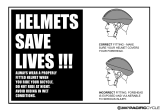
2
Contents
Contents ...................................................................................2
IMPORTANT NOTICE ..................................................................4
TO ENSURE SAFETY ...................................................................5
Cautions regarding LINKGLIDE 11-speed specifications .......7
List of tools to be used ............................................................9
Installation/removal ..............................................................10
Installing the rear derailleur ................................................................10
Adjustment .............................................................................12
Adjusting the stroke on the high limit ...............................................12
Installing the chain ...............................................................................12
Checking the chain length ...................................................................13
Connection and securing of the inner cable ......................................17
• Outer casing length ................................................................................................................ 17
• Connection and securing of the inner cable ........................................................................ 19
Adjusting the stroke on the low limit ................................................22
Adjusting the B-screw ..........................................................................23
SIS adjustment ......................................................................................25
Maintenance ...........................................................................27
Replacing the pulleys ...........................................................................27
Replacing the B-axle ............................................................................28
Replacing the bumper ..........................................................................28
Applying grease to the chain stabilizer ..............................................29
Adjusting friction .................................................................................31
• Friction adjustment ................................................................................................................ 32
Replacing the plate, plate tension spring, and switch lever .............35





















